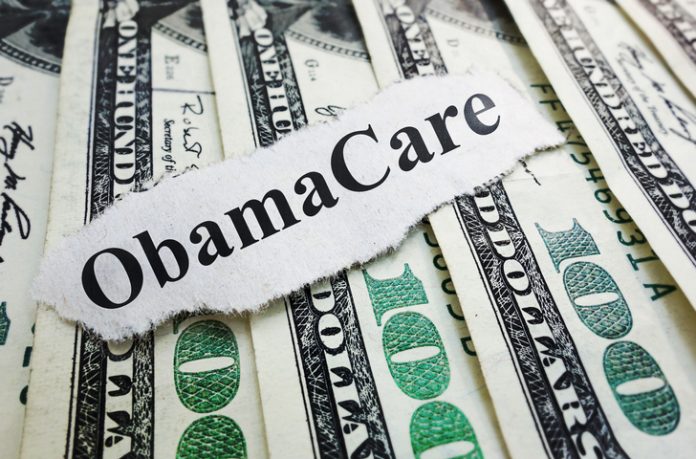Congress’ $1.9 trillion spending package includes a provision to increase subsidies for high-income households in Obamacare plans and direct more money to the health insurance industry.
An analysis by policy analyst Brian Blase for The Galen Institute of The American Rescue Plan Act shows that a family of four earning $212,000 a year could receive $11,000 in tax credits if they purchase a plan from the Obamacare exchanges. Additionally, the bill lifts the cap on who can qualify for health insurance relief.
Insurance Companies Win
Congress plans to spend $34 billion dollars of taxpayer dollars to boost subsidies to insurance companies on the Obamacare exchanges, which would drive up overall health spending. The aim is to boost participation in the Obamacare exchanges by one million people each year.
“So you’re looking at $34,000 per person of taxpayer money to do this,” Blase said on The Heartland Daily Podcast on February 24. “We are already spending $50 billion on Obamacare subsidies and we haven’t increased private coverage at all.”
Blase says about 10 million people are enrolled in the exchanges when it was anticipated 25 million people would be participating by this time. Additionally, subsidies go directly to insurance companies, so in markets with little competition, there will be no pushback for rising premiums. Health care providers, such as hospitals, have also supported the changes, which suggests taxpayers will be spending even more money on health care than they are already, Blase says.
Employers May Drop Coverage
The changes will incentivize employers with an older or lower-income workforce, especially those with fewer than 50 employees, to drop coverage and send those workers to the exchanges. That is because the subsidies will now exceed any tax benefit an employer could get by providing health care outright. Right now, that “tax advantage” averages to about $2,000 per employee.
The Trump administration made a big push to expand the use of Health Reimbursement Accounts to entice employers to provide coverage, Blase says.
“These were all about equalizing the tax treatment, and in a way that would hold the taxpayer harmless,” Blase said, referring to those who lost out on the tax advantage because the employer did not offer health insurance.
Entrenching Obamacare
The changes under the spending bill are temporary, but Democrats have already spoken publicly about making them permanent.
“We want to help businesses that have struggled and unemployed workers, but this bill is not about doing that,” Blase said. “It is more about entrenching Obamacare’s inefficient subsidies in a way that benefits primarily upper-income households and the insurance companies.”
AnneMarie Schieber (amschieber@heartland.org) is the managing editor of Health Care News.
Internet info:
Brian Blase, Expanded ACA Subsidies: Exacerbating Health Inflation and Income Inequality, The Galen Institute, February 2021




















